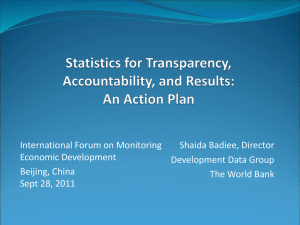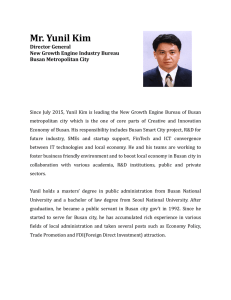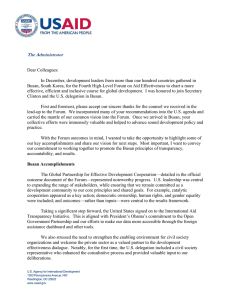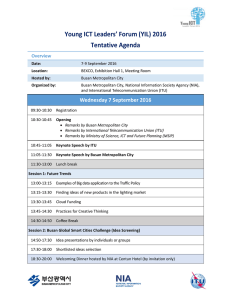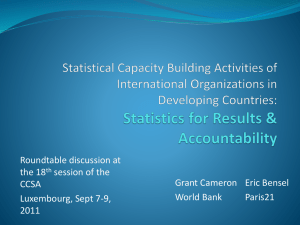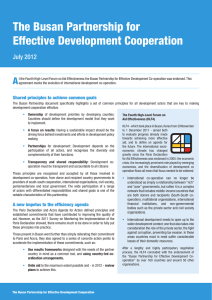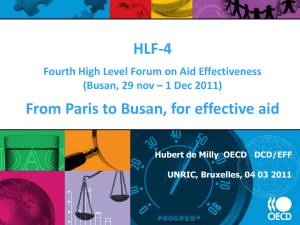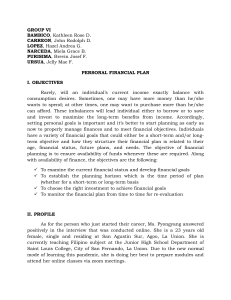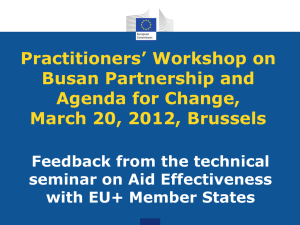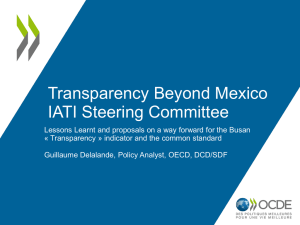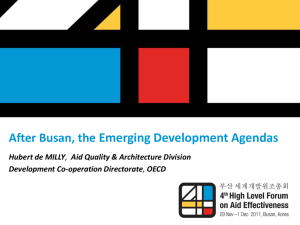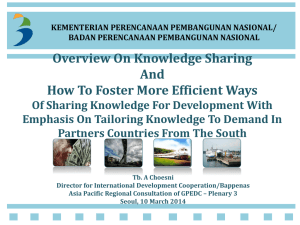Translating Busan and the EU Agenda into practice
advertisement
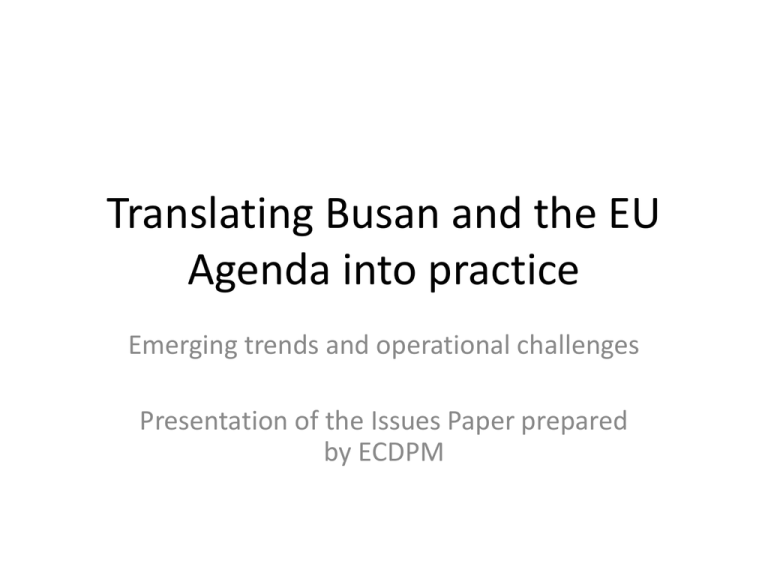
Translating Busan and the EU Agenda into practice Emerging trends and operational challenges Presentation of the Issues Paper prepared by ECDPM How to remain relevant in a changing context? 1. New actors (nonDAC, private sector, global funds…) and new global coalitions 2. Focus on development finance and development effectiveness 3. Aid alone is not enough to address global challenges 2 Translating Busan’s commitments into practice raises many questions…. Can we reconcile the results and risk agenda with country ownership? Are we ready to become facilitators of partner-led change? Busan’s commitment to Country and Democratic ownership Are we well equipped to do this and are the right institutional incentives in place? Can we support home grown reform What does a more processes through political approach to the right mix of aid cooperation mean? modalities? Will the use of country systems be compatible with more demanding eligibility criteria (in budget support)? What does the EU Agenda for Change mean for practitioners? Move forward with PCD, what role can development agencies usefully play? Differentiation = sophistication in risk taking and indicator setting EU Agenda for change in practice Take joint EU action further… yes but what is being done to address current constraints and disincentives? Integrating development instruments in new global agenda, but how can development agencies join hands with emerging economies, multinationals, banks and private sector? Enhanced focus on policy and political dialogue, but how will it work out in practice? Engage with private sector, but are we and the private sector equipped? Busan and the EU Agenda for Change are a tall order…. What are your deepest fears? Are you equipped to address the challenges? What can you usefully do to reconcile the new political commitments into practices that work on the ground?
